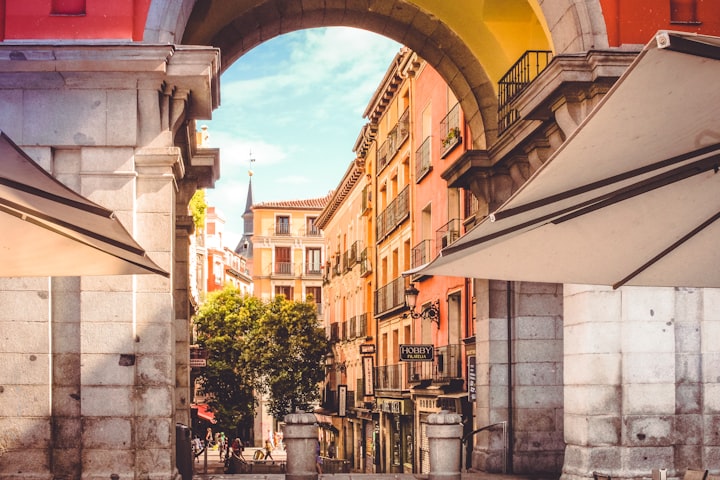In November 2009, an unassuming Saturday afternoon in the heart of Venice unfolded like any other, except for one small detail: a group of pallbearers accompanying a hot pink coffin down an overcrowded canal, led by a somber figure draped in a black cloak. Something had died—not someone, but something. The few remaining residents of Venice were holding a funeral—a funeral for the city. The permanent population had just dipped below 6,000, half of what it was in the 1960s. This public funeral was staged as a publicity stunt by activists and residents mourning the supposed death of the city due to over-tourism. As of this writing, the population had plummeted even further to just 50,000.
Venice, a UNESCO World Heritage Site, is one of the most touristic cities globally, but it's also fragile. Most historic buildings sit atop wooden piles driven into the seabed. With foot traffic and endless boats carrying tourists, there's a real risk of erosion, threatening the city's very foundations. However, Venice is fighting back. In 2021, the Italian government banned large cruise ships from entering the Venetian Lagoon. And in 2024, Venice implemented a 5 EUR per day fee for every tourist entering the city, excluding overnight guests. Theme park-like turnstiles now control entrances, leading some locals to dub the city "Venice Land."
Yet, this raises moral, social, and economic dilemmas. Does overwhelming tourism erode local communities and drive up prices for locals? Or does tourism's financial influx outweigh the cons? This debate persists, and while some argue for restrictions, others advocate for maximizing revenue while preserving heritage.
Keeps, an online subscription service, offers solutions for another prevalent issue—male pattern baldness. With personalized treatment plans and discreet delivery, Keeps has helped nearly one million men combat hair loss, addressing both physical and emotional concerns.
The history of tourism traces back centuries, with the 18th-century Grand Tour marking its formal beginning. Initially exclusive to the upper class, tourism expanded with cheap air travel in the 20th century, democratizing travel for the masses. Today, millions flock to iconic destinations worldwide, impacting local economies and environments.
However, this influx isn't without consequences. Over-tourism threatens fragile sites like Amsterdam's historic center and Santorini's narrow streets. UNESCO sites, including Machu Picchu, face erosion and damage from foot traffic. Even the iconic Coliseum bears scars from excessive tourism.
Proposed solutions range from restricting access to raising prices, but each presents challenges. Limiting access risks elitism, while price hikes may not deter visitors. Moreover, these measures may not address the root issue—balancing tourism's benefits with preservation.
Contrary to popular belief, tourism isn't solely detrimental. It fuels economies, supports jobs, and fosters cultural exchange. Emotional connections formed through travel inspire conservation efforts, ensuring sites endure for future generations.
Small towns like Hallstatt, Austria, have revitalized thanks to tourism. While challenges exist, removing tourism isn't a panacea. Seaside resorts in the UK faced decline with the advent of budget airlines, highlighting tourism's role in community prosperity.
Ultimately, tourism isn't disappearing. As the global middle class grows, so does travel. Rather than vilifying tourists, a balance must be struck. Respectful travel fosters mutual understanding and preserves our shared heritage for generations to come. So, as tourists, let's tread lightly, ensuring our presence enriches rather than diminishes the places we visit.
As we navigate the complexities of modern tourism, it's essential to consider the multifaceted impacts—economic, environmental, and cultural. Tourism isn't a monolithic force; it's a nuanced interplay of human behavior, societal values, and economic imperatives. By understanding these complexities, we can work towards sustainable tourism practices that benefit both visitors and host communities.
Tourism's economic significance cannot be overstated. In many regions, tourism is a vital source of revenue, supporting local businesses, infrastructure development, and job creation. From hotels and restaurants to tour operators and artisans, countless livelihoods depend on a steady stream of visitors. Moreover, tourism can provide opportunities for cultural exchange and mutual understanding, fostering connections between people from diverse backgrounds.
However, unchecked tourism can also have negative consequences. Overcrowding, pollution, and cultural commodification are just a few of the challenges faced by popular tourist destinations. The delicate balance between preserving cultural heritage and meeting the demands of mass tourism is often difficult to maintain. Additionally, the environmental impact of tourism, from carbon emissions to habitat destruction, poses significant threats to fragile ecosystems.
In response to these challenges, sustainable tourism initiatives have emerged, aiming to minimize the negative impacts of travel while maximizing the benefits for local communities and the environment. Responsible tourism practices prioritize environmental conservation, cultural preservation, and community engagement. By supporting local businesses, respecting cultural traditions, and minimizing waste, travelers can help mitigate the negative effects of their journeys.
Educational initiatives and awareness campaigns play a crucial role in promoting sustainable tourism. Travelers can make informed choices by researching destinations, supporting ethical tour operators, and minimizing their environmental footprint. Governments and tourism agencies can implement policies and regulations to protect natural and cultural heritage sites, enforce responsible tourism practices, and invest in sustainable infrastructure.
Ultimately, the future of tourism depends on our collective efforts to balance economic prosperity with environmental and cultural preservation. By embracing sustainable tourism principles, we can ensure that future generations can continue to explore and appreciate the beauty and diversity of our world.
About the Creator
Med Karim
"When you have a dream, you've got to grab it and never let go."







Comments (1)
Hey there, just wanna let you know that this needs to have the disclaimer added to the beginning or ending, stating that it was created with the help of AI 😊